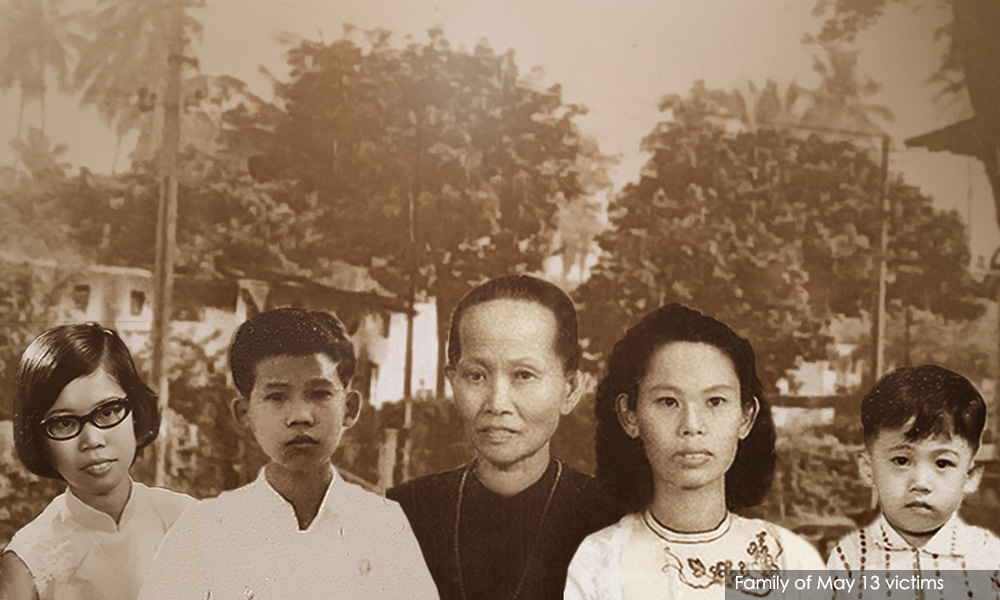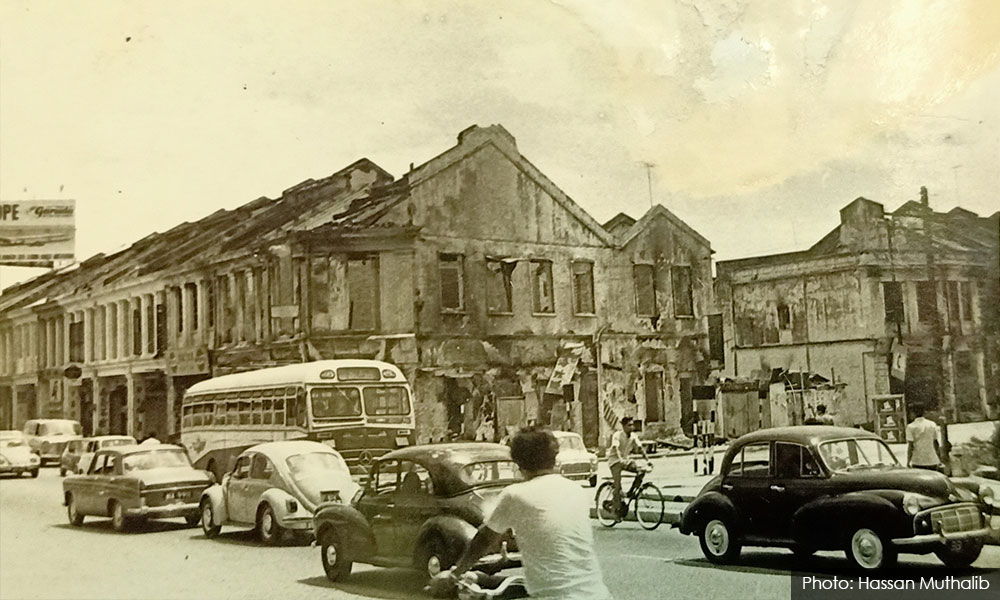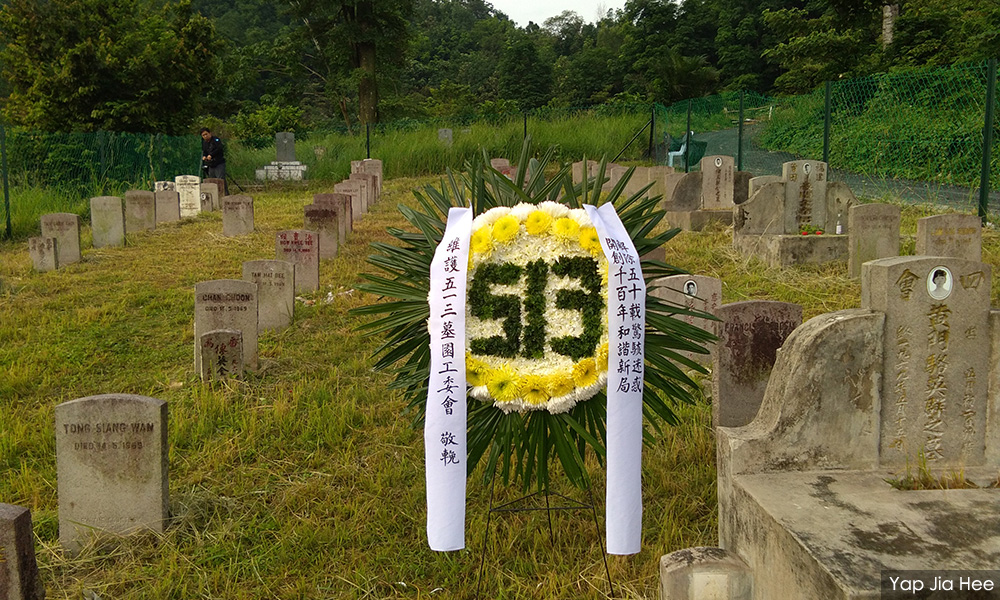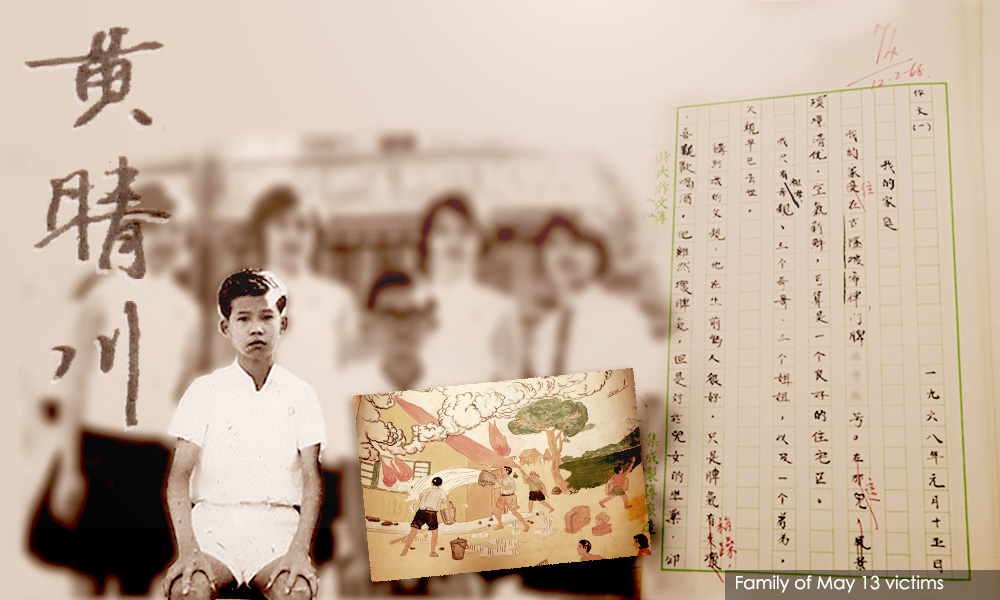
For 48 years, the Ng family did not speak about their five family members who perished in the May 13, 1969 riots.
In 2017, after it was reported that a May 13 burial site in Sungai Buloh may be cleared to make way for a parking lot, the surviving Ng family decided to make their first trip to visit the graves of their family members.
That was the origin of the documentary 50 Years of Silence screened at the Freedom Film Fest 2019 at the PJ Live Arts, Jaya One, Petaling Jaya today, where director Tham Seen Hau slowly pieced together the May 13 story of her mother's family which has been buried all this time.
"I am telling you, I cannot think about it. Every time I think about it, it is too painful," said one of Tham's aunts who remained unnamed.
"Yes, we are all in pain. (Brother) Chau also said, after he was interviewed, he could not sleep for a month," said Tham's mother.
But, she said, she feels a responsibility to finally talk about her family members who lost their lives on May 13 as part of her duty towards them.
"Because they are voiceless and cannot say anything, we need to speak for them.
"I feel I should, this is my responsibility, I must do it," the mother said.

One of the most harrowing accounts told during the documentary were the Ng siblings' discovering the body of their younger brother, Ng Cheng Chuan.
After the end of the riots, the siblings had gone back to their house in Kampung Baru to discover it had been burned down, related Tham's mother.
In the charred ruins of their house, the siblings found in the living room the body of their brother Cheng Chuan, who was 14 years old at that time.
The upper part of the body had been completely ravaged, said Tham's uncle Chau, and only the skull was left.
They only recognised the brother's body from the white school shoes and the pants he was wearing, he added.
Much later after the riots, the eldest Ng brother was called to identify the bodies of the other family members who perished during the riots - their grandmother, the mother, one sister and one other brother.
"After that, I really did not want to talk or think about this incident, because it was a very painful memory.
"All of us siblings never talked about this since, and even though we were given the location of their burial sites, none of us siblings dared to bring this up and none of us went to visit," Tham's mother said.
"At one point in time, I feel like I almost forgot about this incident.
"And then I realised I do not really remember how my mother looked like anymore.
"When I think about it - my siblings who died - I cannot really remember what their faces looked like," the mother said, taking long pauses in between telling the story to dry her tears.
'Humans are not kind'
For Tham's aunt, the incident was so painful that almost 50 years later, she still does not feel comfortable in crowded places or with loud noises.
After what happened on May 13, she also said she believes humans are evil and cruel.
"If you told me there are humans who will kill another person, I believe it. I do not think humans are innately kind," she said.
The 45-minute documentary ends with Tham and her mother going to the National Registration Department (NRD) to extract the death certificates of the family members who died during the May 13 riots.
However, the NRD system apparently still had them listed as "alive".
"Even though they are gone, they are still 'alive'. So they will always be 'alive' now," the mother said, as she drove away from the NRD building.
Legislation needed for reconciliation
In a panel talk after the screening of the movie, panellist and fellow documentary maker Lau Kek Huat said it is important for families of victims to tell their stories.
At the same time, he said, it is also important for those who killed during the May 13 riots to speak up as well.
"We very much need those people to come out and talk about how they were involved and why they were involved," he said, relating the story of a man he interviewed who was a hawker during the riots who ended up joining the killings.
"He was selling food outside the cinema and he saw a mob come and said they wanted to kill those in the cinema.
"The gangsters told him, you must join us. He did join. He took up a knife and went inside the cinema and killed.
"We need such stories to come out but if you come out to speak, you will be put in a very difficult situation," Lau said.

If there is ever going to be reconciliation for what happened on May 13, Lau said there must be some legislation providing amnesty and also a guarantee that the families of those speaking up would be protected, just like in South Africa's post-apartheid truth and reconciliation commission.
However, Tham, who was also a panellist, said the victims and their families must also be considered in considering immunity.
"We also have to consider whether immunity is something the family members or victims will agree to.
"Some may say never because to them... it is so difficult to swallow.
"if you have five family members who died, how can you accept it?" she said. - Mkini

No comments:
Post a Comment
Note: Only a member of this blog may post a comment.